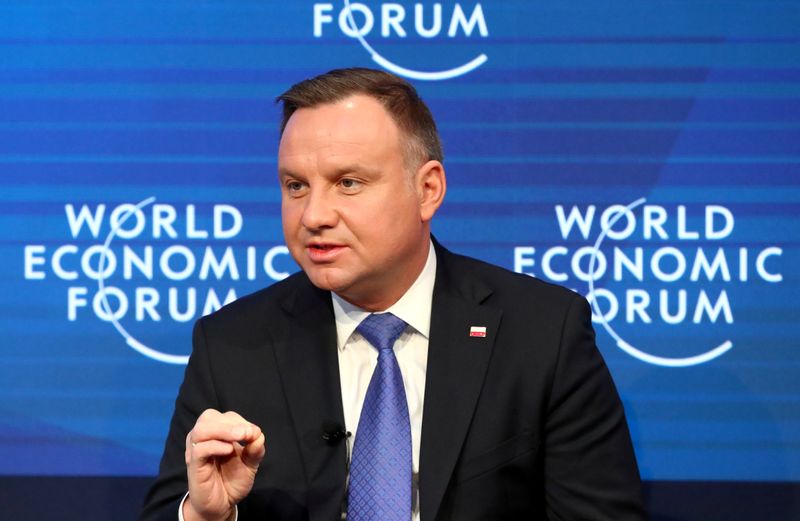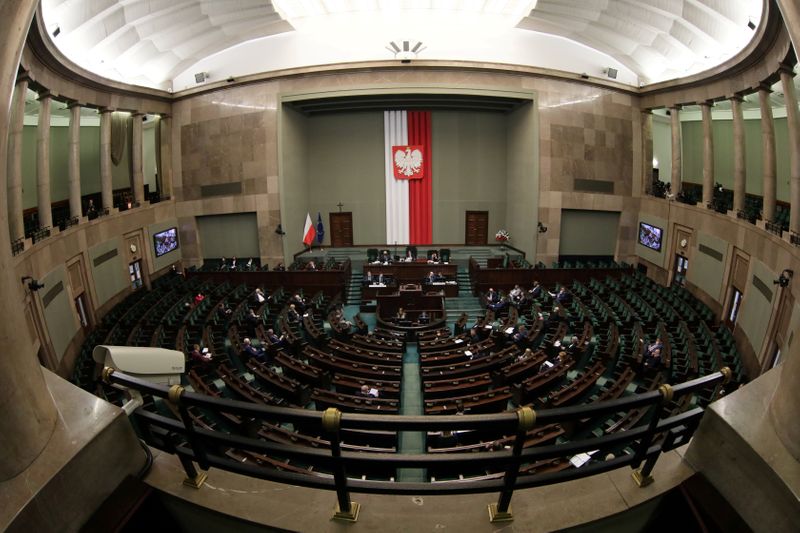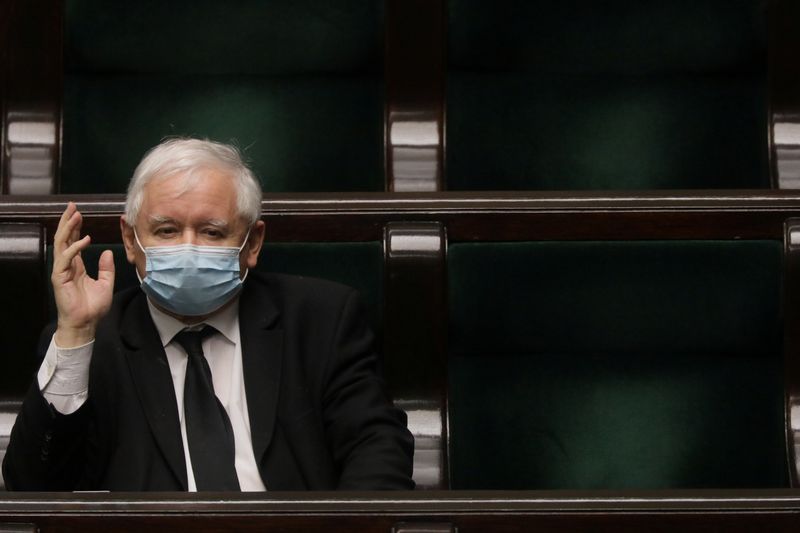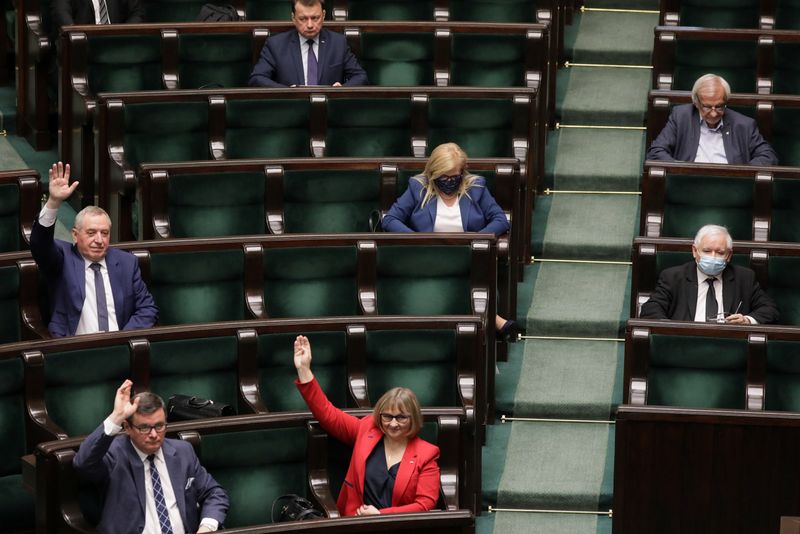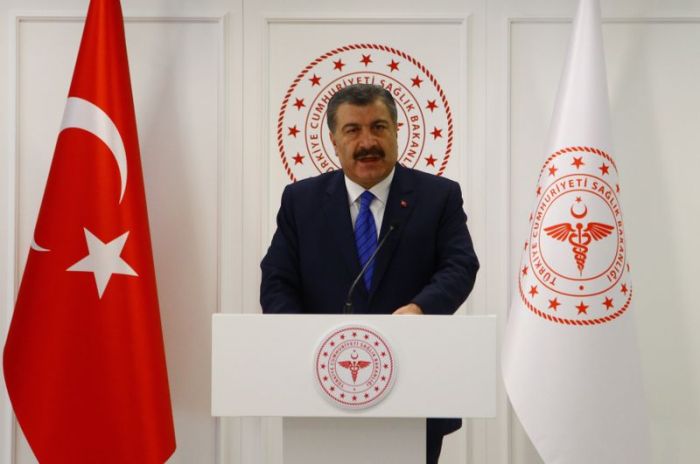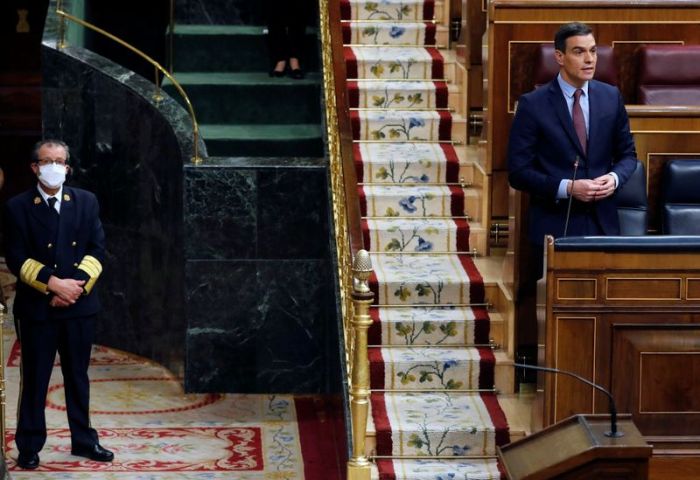WARSAW (Reuters) – Poland’s ruling Law and Justice (PiS) party and a junior coalition partner announced a late-night deal on Wednesday to allow a presidential election scheduled for Sunday to be held at a later date, averting a possible political crisis.
The timing of the election became contentious in Poland after the start of the coronavirus pandemic, with PiS insisting the vote be held as scheduled, and the opposition accusing it of putting political gain ahead of public health.
Disagreements over how to handle the balloting also threatened to break up the conservative ruling coalition, with the junior grouping saying it would oppose in parliament a PiS plan to hold the vote entirely via the post because of health concerns.
The unexpected announcement suggested the row within the coalition had eased, but it was not immediately clear how the parties would go forward with a new election.
In their statement, the parties said only that they anticipated that the Supreme Court would void the Sunday election. Afterward, the parliamentary speaker would announce a new timing for the vote, they said.
Critics said that would appear to co-opt the Supreme Court’s authority and violate election rules.
Adam Bielan, the campaign spokesman for President Andrzej Duda, a PiS ally favored to win re-election, told private broadcaster TVN24 that he expected a new election to be held in late June or early July. Other politicians said it could be held as late as the end of July. Duda’s term ends in August.
PiS, a nationalist grouping with a left-leaning economic agenda, has been keen for a vote as soon as possible because opinion polls show Duda would win re-election if it were held now.
An economic recession expected to follow the coronavirus pandemic could erode its popularity in the coming months.
The party needs the president’s support to make further progress in its judiciary overhaul, which the European Union has said subverts the rule of law by politicising courts.
Last week, PiS installed a former justice ministry official as acting chief of the Supreme Court, following the retirement of one of the party’s most vocal critics.
In power since 2015, the party says it inherited a court system run by self-serving elites and steeped in communist-era power structures, with its reforms aiming to make it more efficient and fair.
JUGGLING DATES
Parliament is due to vote early on Thursday on an earlier PiS proposal to introduce postal voting in response to the coronavirus pandemic. According to health ministry data, Poland has 14,740 confirmed coronavirus cases and 733 deaths.
The opposition and international election observers had said that changing election rules so soon before balloting meant it would not be free or fair.
One constitutional expert said Wednesday’s announcement appeared to contradict constitutional provisions in Poland for changing election dates.
“It’s astounding,” Ryszard Piotrowski of Warsaw University said. “How can you imagine in a democratic country that politicians decide what the Supreme Court will rule.”
Opposition critics said the announcement also raised questions over the coalition’s adherence to rule-of-law norms.
“It’s an unprecedented situation, in a sense that a plan has been developed that engages independent institutions such as the Supreme Court,” a senior lawmaker from the opposition Civic Platform, Tomasz Siemoniak, told Reuters.
“We are rather careful in evaluating the plan because we don’t know any details and we don’t know what it will mean in the coming days.”
A PiS member of the European Parliament, Ryszard Czarnecki, said the agreement showed the governing coalition was intact and that a new date would mitigate any health concerns.
“First of all, we continue to have a majority in parliament,” Czarnecki said. “We have a majority and that’s the most important thing.”
(Additional reporting by Alicja Ptak, Agnieszka Barteczko, Pawel Florkiewicz and Marcin Goclowski; Writing by Justyna Pawlak; Editing by Peter Cooney)


